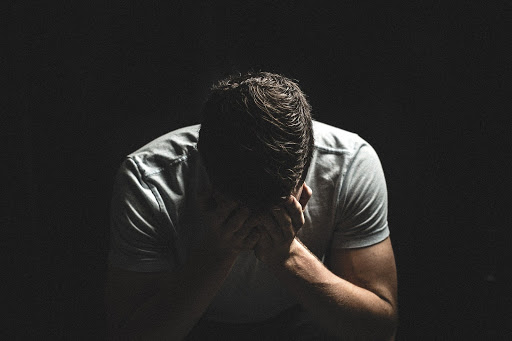It seems like it could happen at any time without warning. Your loved one just got out of rehab. You know that they are tough and resilient. They appear to be doing so well, but you know that that could change seemingly in an instant. Relapse is a common experience for someone struggling with a substance use disorder. For the friends and family of those in recovery, it can be hard to know how to be prepared for the possibility of relapse. Relapse is common. In fact, 40 to 60 percent of those who have received treatment for a substance use disorder relapse within a year. If your loved one has a substance use disorder and is recently sober, it can be hard to know what to do to prevent the possibility of relapse. You want to protect them as much as you can, but it also feels out of your control. But what if there was a way that you could tell if a relapse is coming? According to one evidence-based method with strong support from researchers and professionals, the method we use here at Vertava Health, relapse prevention is possible.
What Is the Gorski Method?
In the recovery process, it’s important for patients to focus on several things, including altering their life, honesty, asking for help when they need it, caring for themselves, and sticking to the rules. Diverting from this is when relapse can occur. The Gorski Method identifies the warning signs of a relapse. By teaching those in treatment the signs, it can help them recognize the early stages of relapse and be better prepared to prevent it. It can also be helpful for the friends and family of someone with a substance use disorder to know these signs to be able to know when a relapse is coming in order to help prevent it. Learning effective coping skills to handle relapse situations is crucial for effective recovery. Cognitive therapy and relaxation techniques help to develop these skills. One of the key things to know about relapse is that it happens gradually. The relapse process begins long before someone with a substance use disorder even picks up a drink or drug. The Gorski Method can be broken down into three stages: emotional, mental, and physical relapse.
What Are the Signs of Relapse?
 Emotional relapse consists of behaviors that could lead to relapse in the future. However, the individual is not yet thinking about using any substances. In general, there is a lack of self-care. Treatment during this stage focuses on increasing emotional, mental, and physical self-care skills as well as identifying and addressing denials. Signs of emotional relapse from the Gorski Method include:
Emotional relapse consists of behaviors that could lead to relapse in the future. However, the individual is not yet thinking about using any substances. In general, there is a lack of self-care. Treatment during this stage focuses on increasing emotional, mental, and physical self-care skills as well as identifying and addressing denials. Signs of emotional relapse from the Gorski Method include:
- Internalizing emotions
- Isolation
- Not eating or sleeping well
- Focusing attention outside of themselves
- Avoiding recovery meetings
During a mental relapse, the individual is torn between wanting to use but also not wanting to use at the same time. If this continues, the desire to use will grow stronger. Signs of mental relapse from the Gorski Method include:
- Frequently wanting to use
- Thinking about things associated with use in the past
- Remembering past use in a more positive light
- Dishonesty
- Justifying use (such as on special occasions)
- Plotting ways to contain use
- Finding a way to use
Treatment during this stage focuses on identifying risks with the patient. It’s also important to make the distinction between intermittent thoughts of use (especially at the beginning of treatment) and mental relapse. The final stage of relapse is physical relapse. Physical relapse is when the individual returns to uncontrolled use, which typically follows the first use. The mindset of the individual during a physical relapse is looking for a chance to use without anyone noticing. Oftentimes, those going through the relapse process won’t even realize that it’s happening. This is because the process is so gradual and happens in stages. Their thought patterns slowly shift. There are usually thoughts of denial and justification of use that eventually cloud the individual’s judgment. Another reason that those in recovery don’t recognize signs of relapse is that they weren’t taught relapse prevention. That is why it’s so important to teach those with a substance use disorder how to recognize the process of relapse during treatment. Individuals who are or have struggled with addiction have been through many challenges. They often have stronger internal resources than they realize and the Gorski method helps them tap into that inner strength. If those in treatment don’t learn relapse prevention, they often think they can turn down a substance when they are faced with it and are getting ready to use it. This can happen during physical relapse. Although those with a substance use disorder are tough and resilient, substances are still extremely difficult to turn down at this point and typically leads to relapse. If a person stays in the physical relapse stage for a prolonged period of time without the proper coping skills, they are more likely to use substances as an escape.
What Should You Do if You Notice Relapse Signs?
The best thing that you can do if you or a loved one is experiencing these signs of relapse is to get help as early in the process as possible.  Ideally, the individual struggling with a substance use disorder would have learned how to identify the early stages of relapse during treatment. If this is the case, they are more likely to be able to prevent relapse. However, if that isn’t the case or your loved one isn’t able to prevent the relapse process, there’s still hope. If you notice the early signs of relapse, which occur during the emotional relapse stage, intervention is key. It’s important to get help early on because once your loved one reaches and stays in the physical relapse stage, it is much harder to avoid a full-blown relapse. Getting help at the first signs of relapse will enable your loved one to understand the relapse process, what is going on, and how to develop coping skills to change their thoughts and behaviors.
Ideally, the individual struggling with a substance use disorder would have learned how to identify the early stages of relapse during treatment. If this is the case, they are more likely to be able to prevent relapse. However, if that isn’t the case or your loved one isn’t able to prevent the relapse process, there’s still hope. If you notice the early signs of relapse, which occur during the emotional relapse stage, intervention is key. It’s important to get help early on because once your loved one reaches and stays in the physical relapse stage, it is much harder to avoid a full-blown relapse. Getting help at the first signs of relapse will enable your loved one to understand the relapse process, what is going on, and how to develop coping skills to change their thoughts and behaviors.
It May Be Time to Get Help
If your loved one is home from rehab, be sure to know and look out for the warning signs of relapse. Doing so allows you to recognize when a relapse may be coming early on and to prevent it by intervening early. When looking for a treatment center, make sure that your loved one will be taught how to identify when a relapse is coming on and to learn coping skills to successfully prevent the relapse. These coping skills are taught through cognitive therapy. Remember, relapse is a process that happens gradually. So, it’s important to be able to recognize it early on.
Frequently Asked Questions
What is the relationship between self-efficacy and relapse prevention? Self-efficacy is the belief one has in their abilities to achieve a goal. The amount of self-efficacy a person has correlates with how they will perceive and handle a relapse. If the initial substance use does happen, someone with a high level of self-efficacy is more likely to perceive it as a short-term obstacle and will regain control over use. However, those with low self-efficacy are more likely to lose control and enter into relapse. Why is it important to teach clients strategies to prevent slips from escalating into relapses? Because relapses are common, it’s important to prepare those struggling with an SUD with the situations they may face. Developing the right coping skills and being able to recognize the early stages of relapse is the best way for someone to avoid relapse. How can self-efficacy be improved? Self-efficacy can be built by experiencing success and seeing others experience success. Feedback and motivation also help encourage effort. Positive emotional states also help self-efficacy. This means that providing environments with low levels of stress is important. If you or a loved one is struggling with addiction or has relapsed, get the help you need as soon as possible. At Vertava Health, we offer anything you or a loved one may need to get treatment for a substance use disorder. Learn more about our treatment options and give us a call with any questions or to get started on your recovery at 844-470-0410. We even have a virtual health option for those looking for treatment from home. We have facilities in Mississippi and Tennessee.


